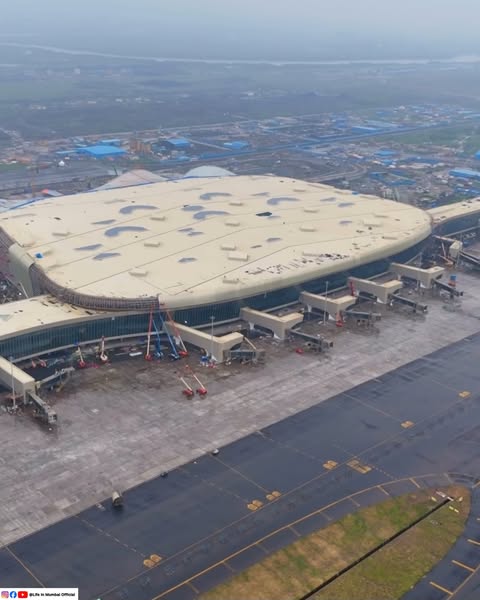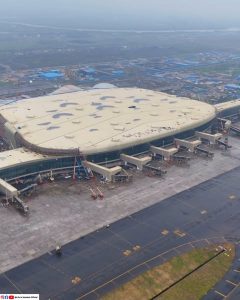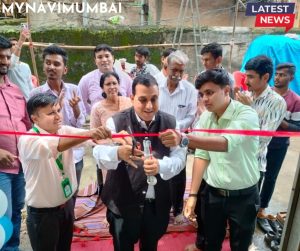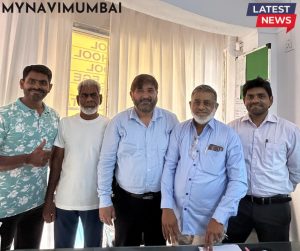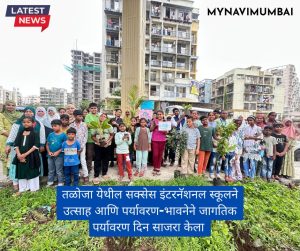नवी मुंबईकरांसाठी ऐतिहासिक क्षण जवळ आला आहे!
डी. बी. पाटील आंतरराष्ट्रीय विमानतळ (NMIA) चे उद्घाटन ३० सप्टेंबर २०२५ रोजी होणार असून प्रवासी विमानसेवा नोव्हेंबरपासून सुरू होतील. पहिल्या टप्प्यात एक धावपट्टी व टर्मिनल १ कार्यान्वित होणार असून दरवर्षी २० दशलक्ष प्रवाशांची सोय होणार आहे. इंडिगो आणि अकासा एअर या प्रमुख विमान कंपन्या सुरुवात करणार असून लवकरच इतर देशांतर्गत व आंतरराष्ट्रीय विमान कंपन्याही सामील होणार आहेत. या विमानतळामुळे नवी मुंबईतून जगाशी थेट दुवा जोडला जाणार आहे आणि या शहराच्या प्रगतीला नवे पंख मिळणार आहेत.
Navi Mumbai, September 2025 — The wait is finally over. The much-anticipated D. B. Patil International Airport—more commonly referred to as Navi Mumbai International Airport (NMIA)—is set to be inaugurated on 30 September 2025. Passenger services are expected to begin in early November 2025. With its first phase ready, the airport promises to reshape air travel for the Mumbai Metropolitan Region.
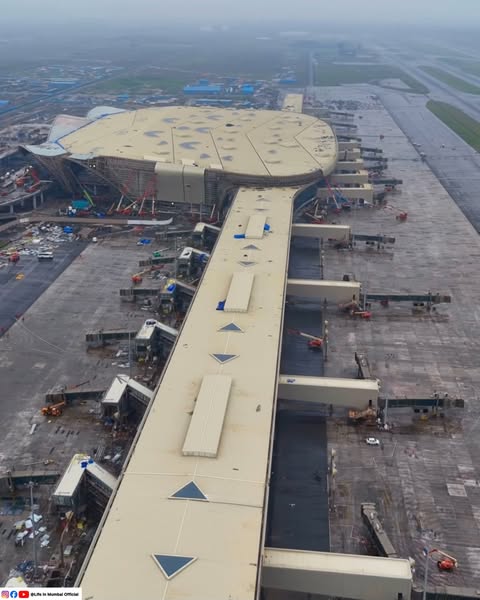
Key Specifications & Features
Here’s what Phase 1 brings, plus what’s coming up:
- Runway & Airfield
Phase 1 will open with a single runway. This runway is 3,700 meters long and ~60 meters wide. Eventually, there will be two parallel runways, spaced about 1.55 km apart, enabling more simultaneous operations - Terminal & Passenger Capacity
The first terminal, Terminal 1, will handle around 20 million passengers per year in Phase 1. The design features are ambitious: three interconnected terminals in total (in full build-out), with a theme inspired by the lotus flower. Facilities will include lounges, food courts, travelators, etc. - Cargo Facilities
In Phase 1, NMIA will handle about 0.5 million tonnes of cargo annually. The domestic cargo terminal spans ~360,000 sq ft, while the international cargo terminal is ~255,000 sq ft. - General Aviation & Other Infrastructure
There is a dedicated general aviation terminal, one of the largest planned in India, with ~67 aircraft stands and a heliport. Other infrastructure includes a fuel farm, three aircraft hangars, apron systems, taxiway systems, airfield ground lighting, etc.
Connectivity, Ownership & Planning
- Ownership & Operation
The airport is being developed by Navi Mumbai International Airport Limited (NMIAL) under a public–private partnership (DBFOT: Design-Build-Finance-Operate-Transfer), with the City & Industrial Development Corporation (CIDCO) and Adani Airports Holdings involved. - Location, Land & Scale
The airport is situated near Ulwe–Panvel in Raigad district, Maharashtra. It covers a large area — core aviation area plus space for connectivity, support services, etc. - Future Phases
Phase 1 (~20 million passengers and ~0.5 million tonnes cargo) is just the start. The airport is planned to scale up through multiple phases, with full operational capacity expected to reach 90 million passengers per year and ~2.5 million tonnes of cargo annually by around 2032.
Who is Launching & Operational Timing
- Airlines
IndiGo and Akasa Air are anchor airlines in the launch phase. More airlines (domestic and international) are expected to join soon. (As you already had.) - Operational Timeline
- Inauguration: 30 September 2025
- Passenger flights start: early November 2025 (after necessary operational readiness, regulatory approvals, etc.)
- Additional phases of development including second runway, new terminals to follow in the coming years.
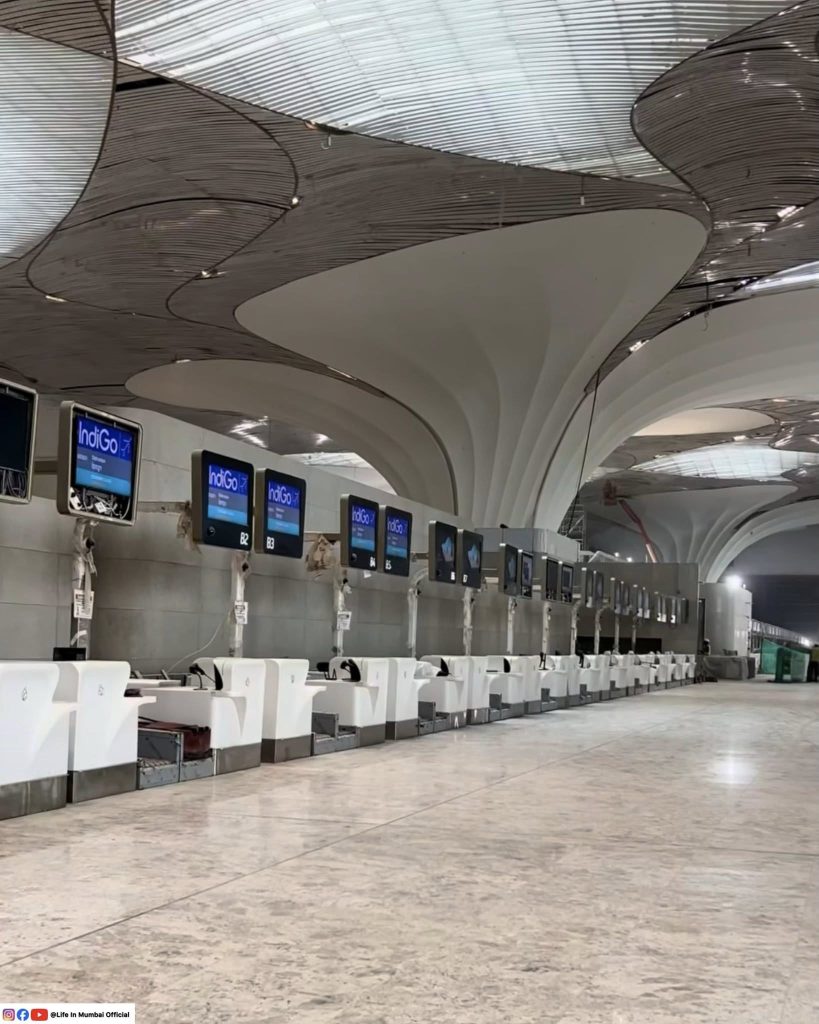
Additional Notes & Impacts
- User Fees / Tariffs
Approved from regulatory bodies: For example, departing passengers will have a “User Development Fee” (UDF), which is ~₹620 for domestic and ~₹1,225 for international flights, arriving passenger charges also set. These may be temporary until final tariffs are formalized. - Why It Matters
- Helps decongest Mumbai’s current airport (Chhatrapati Shivaji Maharaj International Airport).
- Enhances regional connectivity (road, metro, possibly by waterways, etc.).
- Supports growth in passenger and cargo traffic.
- Opens up infrastructure for business jets, general aviation more fully.
- Design & Sustainability
Aesthetic design features (lotus motif), emphasis on good passenger experience. Also plans for good connectivity (road, metro lines) to integrate the airport well into Mumbai Metro / Navi Mumbai transit systems.
The inauguration of D. B. Patil International Airport marks more than just the opening of a new terminal — it represents a turning point in Navi Mumbai’s journey toward becoming a global city. With cutting-edge infrastructure, strong connectivity, and massive capacity for growth, NMIA is poised to become one of India’s premier aviation gateways.
From Navi Mumbai to the world, the runway is ready, the engines are set, and the city is prepared to take off into a future of limitless possibilities.

